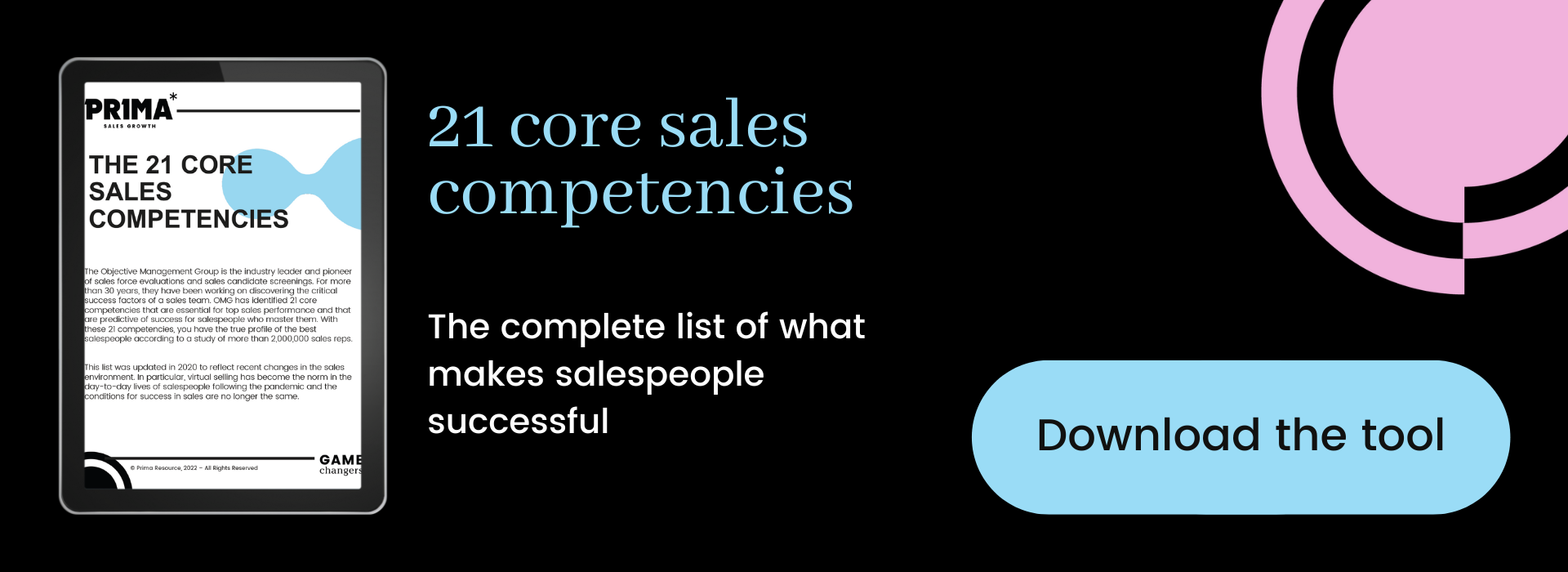
What is the big argument used by your representatives to resolve the objections they face?
Let’s get something straight…
There is no magic argument!
So stop looking for it and also tell your representatives to stop looking for it.
What Is an Objection?
Sales objections come in many forms.
Some are obvious (“it’s too expensive“), others are hidden (“I’ll think about it“). No matter what, an objection is nothing more than an opportunity to ask questions that allow you to go deeper into the conversation and thus find the client’s real problem.
It is also possible to get ahead of prospects and remove the opportunity to raise objections in the first place: “I can tell you in advance that we’re not the cheapest and customers usually work with us for X reasons and Y reasons.”
Also, how a representative reacts when he or she is caught off guard by an objection can be an indication that they lack emotional control. Controlling one’s emotions is an element of Sales DNA, and the absence of one or more elements that make up that DNA will have a negative impact on the course and outcome of the sales process.
The Real Impact of Arguments and Counter-Arguments
There is a saying on sale that the only person who can resolve an objection is the person who raised it.
How to Deal with Objections
Poorly handling one or more objections often pushes sales reps into a spiral of endless follow-ups which prevents them from taking actions that increase the likelihood of closing sales.
1. Lower the Resistance
When your representatives face an objection, the first thing to do is to lower the resistance.
The reflex is often to say something like, “Can I rebut?” or “Can I answer that?” or “Can I give you our perspective or our opinion?”
Instead, your representatives should lower the resistance by saying:
- I understand.
- That’s a good question.
- That’s a good point.
- It’s not unusual for people to share that with me.
- Can I ask you a question?
Then continue with a question.
2. Ask Questions
Asking questions is the second element required to resolve an objection. In fact, asking questions is an example of actions that good salespeople systematically do. Your representatives must ask the necessary questions that will help the potential client to find the answer to his or her objection.
Takeaways
If you want to be more effective and your team to be more effective in resolving objections, the first step is to stop believing in objections.
Believing in objections is a limiting belief among representatives. Limiting sales beliefs are statements accumulated by sellers over time and their experiences. They are firmly entrenched in the vast majority of salespeople and are detrimental to their sales performance. In general, representatives emphasize these beliefs to justify certain behaviours or the absence of specific activities.
Believing in objections and interpreting them as such instead of interpreting them as a question, concern or past lousy experience makes the representative emotional.
Such a reaction causes the salesperson to put his prospect on the defensive, which endangers the probability of making the sale.
It is better to develop a new belief that will support the sale. “Objections cease to be objections once you affirm that ‘There’s no such thing as Objections.’ Then they’re simply opinions.”






